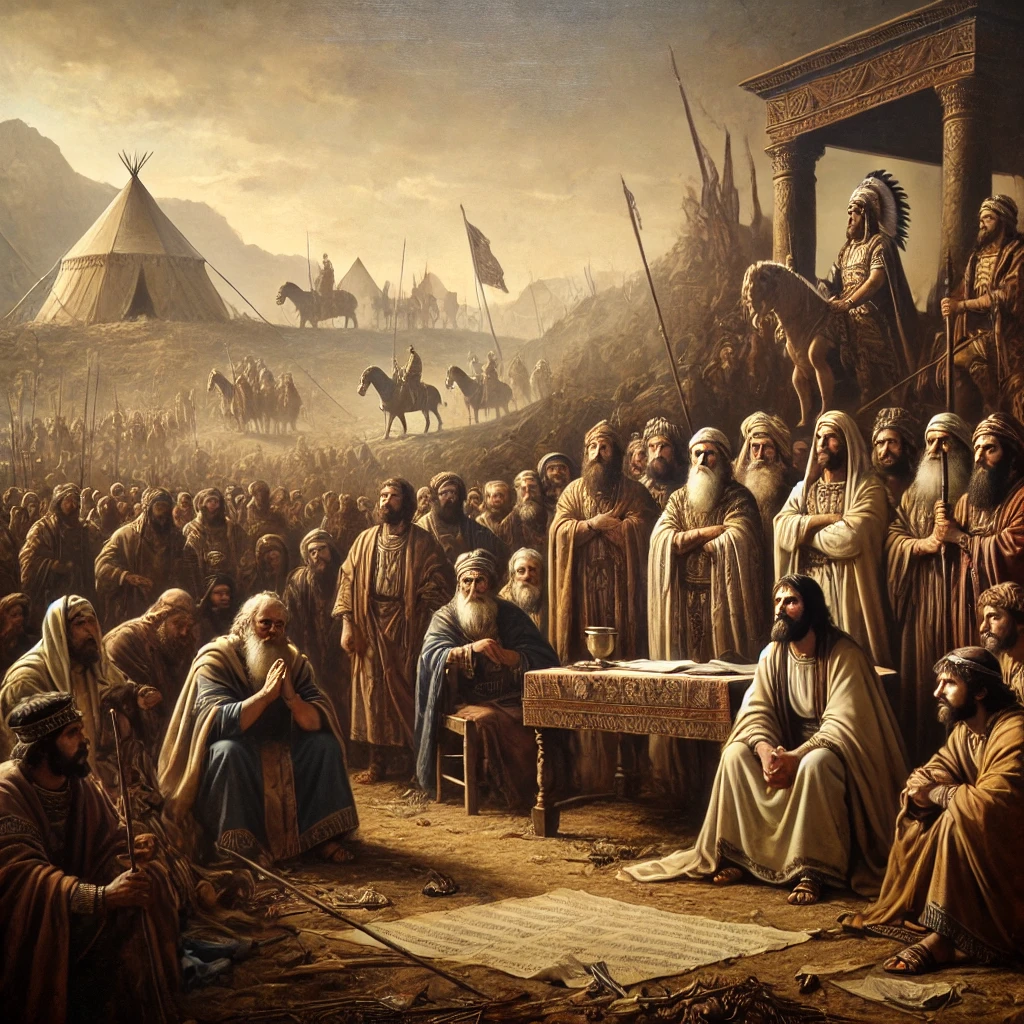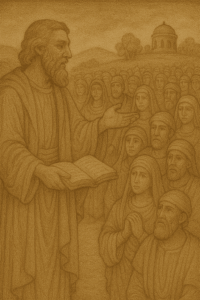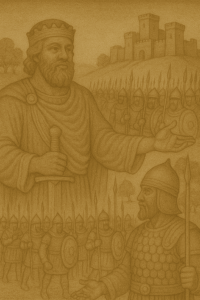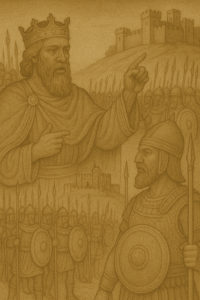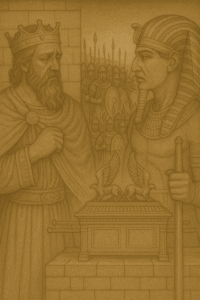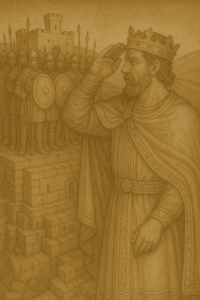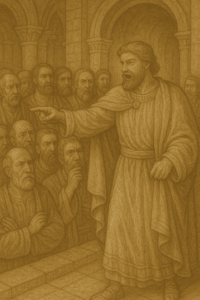Judges Chapter 21 concludes the Book of Judges with a somber and reflective account of the aftermath of the civil war against the tribe of Benjamin. After nearly annihilating one of their own tribes, the Israelites grapple with the consequences of their actions and seek to restore the tribe of Benjamin to prevent its extinction. This chapter explores themes of regret, reconciliation, and the complexities of justice and mercy.
The Israelites’ oath and grief.
Following the devastating civil war detailed in Judges Chapter 20, the Israelites realize the gravity of their decision to nearly wipe out the tribe of Benjamin. The chapter opens with the Israelites gathering at Bethel, where they mourn and weep bitterly before God. They express deep sorrow, saying, “Why, Lord, God of Israel, has this happened to Israel, that today one tribe is missing in Israel?”
The Israelites had made a rash oath at Mizpah, declaring that none of them would give their daughters in marriage to a Benjamite. This oath, combined with the near-total destruction of Benjamin’s cities and people, places the tribe on the brink of extinction, with only 600 men surviving the conflict.
A plan for restoration.
Determined to restore the tribe of Benjamin and provide them with wives, the Israelites devise a controversial plan. They discover that no one from Jabesh Gilead had come to the assembly at Mizpah. To resolve their predicament, they send an army to Jabesh Gilead, killing every man, woman, and child, except for 400 virgin women. These women are brought back and given to the surviving Benjamites as wives.
However, 200 Benjamite men remain without wives. The Israelites then devise a second plan involving the annual festival at Shiloh. They instruct the remaining Benjamites to hide in the vineyards and capture the young women of Shiloh who come out to dance during the festival. This plan, though ethically questionable, is carried out, and the tribe of Benjamin is thus provided with wives.
The restoration of Benjamin.
The chapter concludes with the tribe of Benjamin being restored and rebuilding their towns, ensuring the survival of their lineage. The Israelites then return to their respective territories, and the book ends with the profound statement, “In those days Israel had no king; everyone did as they saw fit.”
Theological reflections.
Judges Chapter 21 presents a powerful reflection on the complexities of justice, mercy, and the consequences of human decisions. The Israelites’ actions, driven by a mix of regret, desperation, and a desire for restoration, underscore the challenges of navigating the tension between upholding an oath and ensuring the survival of a tribe. This chapter serves as a reminder of the importance of wise leadership, the dangers of rash decisions, and the need for seeking God’s guidance in times of crisis.
The impact of Judges chapter 21.
The conclusion of the Book of Judges emphasizes the moral and spiritual anarchy that defined this period in Israel’s history. The refrain, “In those days Israel had no king; everyone did as they saw fit,” encapsulates the chaos and the need for righteous leadership. The story of the tribe of Benjamin’s near-extinction and restoration serves as a cautionary tale about the importance of community, unity, and adherence to God’s laws.
